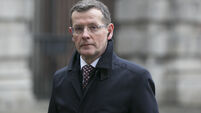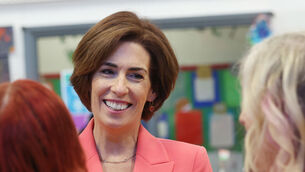Ahern defends re-burial of Independence War heroes
Taoiseach Bertie Ahern tonight issued a strong defence of day-long ceremonies in Dublin to honour 10 men executed by Britain for their part in Ireland’s war of independence more than 80 years ago.
But he dismissed any connection between the actions of the men involved and the Northern Ireland-linked violence of the past 30 years.













